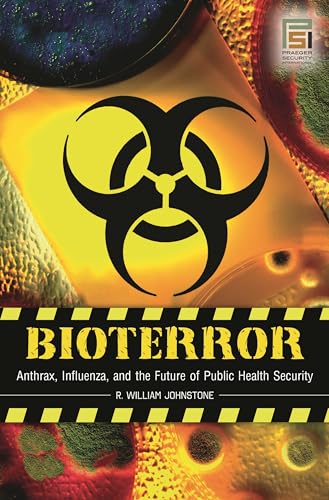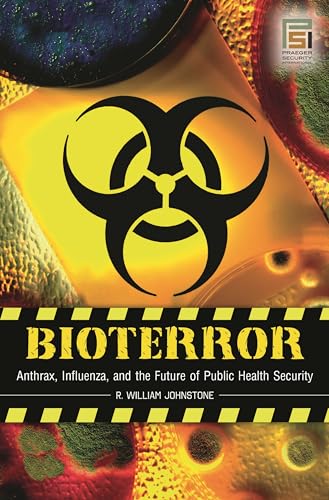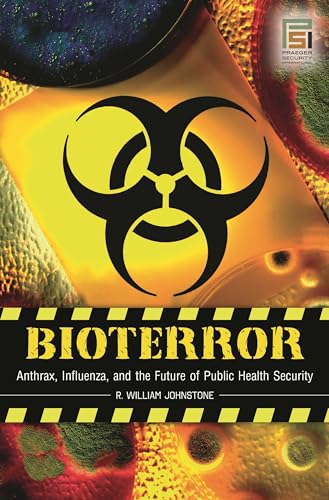Bioterror: Anthrax, Influenza, and the Future of Public Health Security (Praeger Security International)
Bioterror: Anthrax, Influenza, and the Future of Public Health Security (Praeger Security International) is backordered and will ship as soon as it is back in stock.
Couldn't load pickup availability
Genuine Products Guarantee
Genuine Products Guarantee
We guarantee 100% genuine products, and if proven otherwise, we will compensate you with 10 times the product's cost.
Delivery and Shipping
Delivery and Shipping
Products are generally ready for dispatch within 1 day and typically reach you in 3 to 5 days.
Author: Johnstone, R. William
Brand: Bloomsbury
Edition: 1
Binding: Hardcover
Number Of Pages: 232
Release Date: 01-09-2008
model number: illustrations
Part Number: illustrations
Details: Product Description
This book uses the 2001 anthrax attacks as its point of departure for an analysis of the past, present, and future of America's preparedness to deal with major challenges to public health, including bioterrorism and pandemic flu. The study identified the strength and weaknesses of the system while making recommendations for improvements. This allows the U.S. to be better prepared if faced with a larger or different biological threat. This book looks for linkages not only between bioterrorists and pandemic defenses, but also between public health security and the wider field of homeland security. Johnstone highlights some key foundation plans and strategies that are to serve as a basis for public health security. Failure to address these crucial issues not only creates unfounded mandates but also inhibits priority setting, leadership, and accountablity.
Bioterror: Anthrax, Influenza, and the Future of Public Health Security utilizes a large number of sources from within both the public health and public policy communities to document how each sector responded to the anthrax attacks and re-emergent infectious diseases, and how those responses have evolved to the present day, As with other areas of homeland security, sustained progress in public health security is not likely until basic questions about funding priorities and leadership are successfully addressed. In the response to the only mass casualty event in the United States since 2001, Hurricane Katrina, and in various emergency simulation exercises such as TOPOFF series, major performance deficiencies have been observed. This book brings together a variety of sources, the best available evidence on the status of the public health security system at three distinct points: before 2001; during and immediately after the anthrax attacks; and in the period from 2004 to the present.
Review
"On or about September 17, 2001, some person or persons mailed a series of anthrax-laden letters to prominent media and political figures. For months a nervous public watched anxiously as health and law enforcement authorities at all levels of the federal system attempted to contain the disease and explain why the citizenry was suddenly vulnerable. Johnstone pierces the cacophony of media and governmental observations about the public health crises that ensued by writing a clear narrative of what happened, and why, during the following five years. Moreover, most of this book demonstrates that the existing public health system was ill prepared to cope with a threat of such scale and scope. The remaining quarter of the book asks 'just how safe are we?' now that both terrorism and global travel can spread disease organisms throughout once isolated and secure human populations. The author concludes that the anthrax crisis has generated some effective policy reforms. However, the evolution and development of new and more lethal germs continue to outpace governmental capacity. Recommended. All readership levels." -
Choice
About the Author
R. WILLIAM JOHNSTONE served on the staff of the 9/11 Commission, after working for over 20 years as a Congressional staff member. He is the author of 9/11 and the Future of Transportation Security. Johnstone is a consultant on homeland and national security matters.
EAN: 9780275993269
Package Dimensions: 9.3 x 6.2 x 1.1 inches
Languages: English





